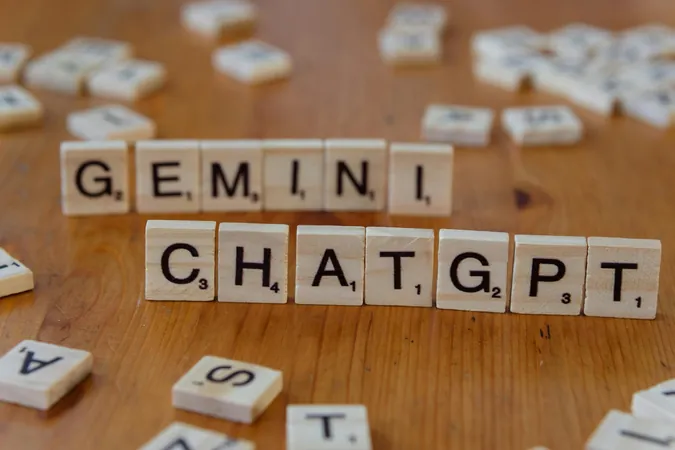
Google's Controversial Move: Rolling Out Gemini AI Chatbot for Kids Under 13
2025-05-11
Author: Ming
A Bold Step Into Child-Centric AI
In a provocative decision, Google is preparing to launch its Gemini artificial intelligence chatbot for children under 13, starting next week in the United States and Canada, with Australia following later this year. This initiative promises to redefine how young ones interact with technology but carries significant risks for their safety and well-being.
Control is Key: How Gemini Will Function
Available exclusively to users with Google’s Family Link accounts, the Gemini chatbot allows parents to impose restrictions on app usage and content. To set up an account for their child, parents must input personal information, raising questions about privacy amidst concerns of data security. Google assures that the children's data used on the platform won’t be employed to train AI systems.
One notable aspect is that chatbot access is switched "on" by default, compelling parents to take active steps to disable the feature. Children can interact by asking the chatbot to generate text responses or create images. However, Google acknowledges the chatbot's potential for inaccuracies, emphasizing the need for vigilance and fact-checking, especially for educational purposes.
Navigating the New Digital Landscape
The Gemini AI operates differently from traditional search engines. While search platforms retrieve existing content from the web, the AI analyzes patterns and creates new responses based on user prompts—a child could ask it to "draw a cat," and it would generate an image based on its learned representations of a cat. Understanding these distinctions can be complex, even for adults, posing a challenge for young users.
Safety Measures or New Challenges?
Google claims that built-in safeguards will ensure content remains age-appropriate. Yet, this raises concerns, as overly restrictive measures could inadvertently block access to valuable information, like educational content about puberty.
Children today are increasingly tech-savvy and adept at navigating digital platforms. Parents must actively engage with their kids, overseeing the generated content and promoting comprehension of the tool’s functionalities.
Assessing the Risks of AI Companions
The eSafety Commission warns that AI chatbots can simulate personal relationships and potentially disseminate harmful material. This is particularly concerning for younger audiences, who are still developing essential critical thinking skills to decipher and understand the complexities of AI interactions.
Combating the Mavericks of Modern Tech
This rollout is especially timely in Australia, where children under 16 will be prohibited from holding social media accounts starting December. While this might seem like a protective measure, it starkly illustrates that the dangers of digital engagement extend far beyond social media.
As Gemini’s chatbot circumvents social media restrictions, Australian parents face the daunting task of keeping pace with rapid technological advancements, understanding both the potential risks their children might encounter and the limitations of social media bans in safeguarding them.
A Call for Enhanced Digital Responsibility
This situation emphasizes the urgent need for Australia to hasten its digital duty of care legislation. With the EU and UK already implementing protections in 2023, it's crucial for Australia to catch up, ensuring that tech companies are held accountable for harmful content and committed to the protection of children in this ever-evolving digital landscape.





 Brasil (PT)
Brasil (PT)
 Canada (EN)
Canada (EN)
 Chile (ES)
Chile (ES)
 Česko (CS)
Česko (CS)
 대한민국 (KO)
대한민국 (KO)
 España (ES)
España (ES)
 France (FR)
France (FR)
 Hong Kong (EN)
Hong Kong (EN)
 Italia (IT)
Italia (IT)
 日本 (JA)
日本 (JA)
 Magyarország (HU)
Magyarország (HU)
 Norge (NO)
Norge (NO)
 Polska (PL)
Polska (PL)
 Schweiz (DE)
Schweiz (DE)
 Singapore (EN)
Singapore (EN)
 Sverige (SV)
Sverige (SV)
 Suomi (FI)
Suomi (FI)
 Türkiye (TR)
Türkiye (TR)
 الإمارات العربية المتحدة (AR)
الإمارات العربية المتحدة (AR)